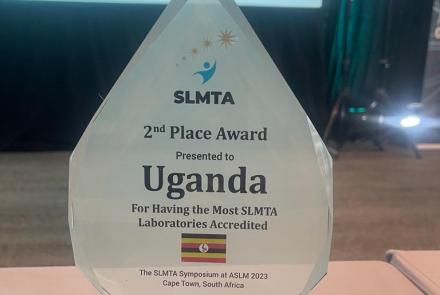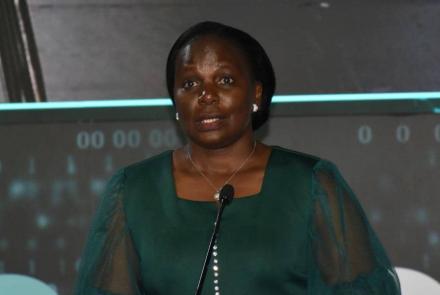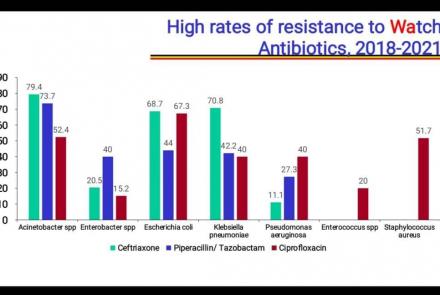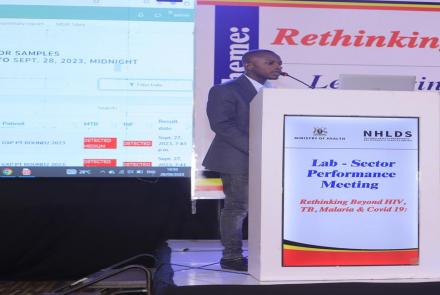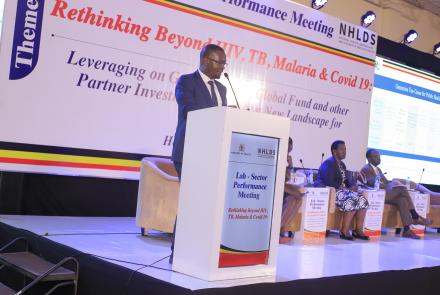Governance of the Bio-repository
UNHLS handles and is being in contact with specimen from all over the country. Alot of these are clinical samples and we have the potential to do operational research because of being incharge of guiding labs country wide. We took the road of building bio-bank based on the global security agenda. As UNHLS, we thought we could build this resource to address bio-security issues but also promote science.
This meeting that began on Monday 5th/07/2018 has been attended by Implementing partners, researchers, DHOs, DLFPs and UNHLS managers.
Professor Joloba's thinking of this governance is that we need to put together bio repository as an independent unit and also link up with the constitutional review board for cooperation and transparency so as to meet international requirement. There are issued comprehensive guidelines that we can use to meet the standards as we contribute to the development of the national guideline. He foresees broad involvement of stakeholders as a big picture and ofcourse academia.
As a Bioethicist, Dr. Mwaka spoke of the country not having guidelines specifically for biobanking. As we protect the identity of the sample, the specific samples need to be deidentified by coding them so that they can be linked back. And there is the need to comeup with a consent document with a clause for the use of residual sample.
Dr. Jingo a Bioinfomatics, also said that this is a nobal cause and a perfect timing. He went ahead to list the three layers in Biorepository and stated that the middle layer of ICT is super important and a very enabling function since we deal with thousands of samples and keeping track of various variables. Dr. Jingo added that the oversight of implementation of appropriate ICT infrastructure that will enable proper translation of these policies being key.
The meeting was closed today by the UNHLS Commissioner, Dr. Nabadda Susan.


